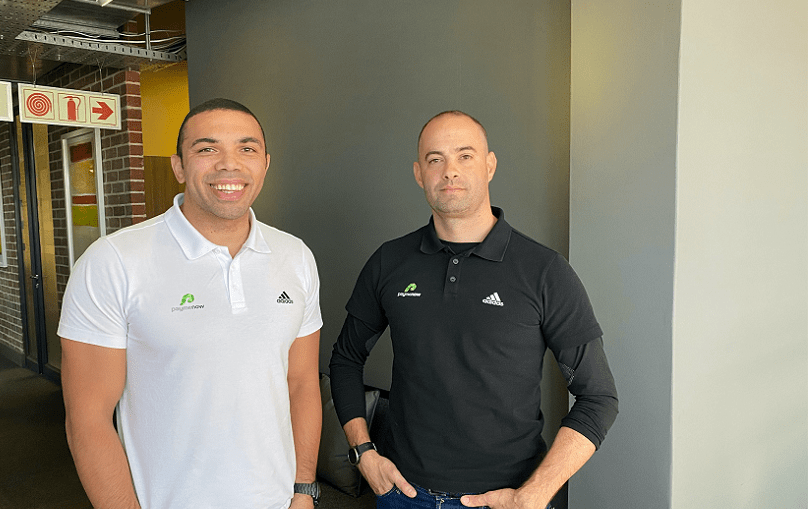South African fintech startup Paymenow has developed a financial wellness and inclusion platform that allows employees responsible early access to already-earned wages through a mobile app, and uses gamification to promote responsible financial behaviour and encourage saving.
The Stellenbosch-based Paymenow was formed in 2019 and went live with its first customer a week before lockdown hit in March 2020. Its platform allows employees early access to their wages, but utilises gamification to take them on a journey to financial wellness. As they complete stages their status improves, and they get rewards by way of lower service fees.
Founded by Deon Nobrega alongside business development head Bryan Habana (a Rugby World Cup winner), technical director Willem van Zyl, head of software development Gerry Potgieter, and founder investor Garth Mackintosh, Paymenow aims to ease the burden inflicted by payday and micro lenders through affordable, real-time, access to cash.
While the startup directly engages employees, its client is the employer, which enables and handles the payroll cash out to employees, and deducts the fees.
“Paymenow benefits employers and employees through providing access to funds that employees desperately need, without them having to resort to extortionate payday loans,” Nobrega told Disrupt Africa.
“Paymenow aims to dominate the nano-transaction space, providing early access to hundreds of rands worth of wages – where the payday loans play – and helping employees to go from loans to savings and investments, one small amount at a time.”
This is a new concept in South Africa, but one that has been tried, tested and proven its success in both the United States (US) and United Kingdom (UK) over the past few years. Nobrega and Habana went and met the two market leaders in London in September 2019, where they got insight into the business models but realised that there was a lack of financial wellness and responsibility built into the solutions, particularly pertaining to those people, in emerging markets, severely impacted by payday lending and micro loans.
“Instead of partnering with developed markets peers, Paymenow developed its own solution, in a way that focuses on “business for good” with its end goal to change a vicious debt cycle into a savings mindset,” said Nobrega.
The unique approach has paid dividends, with Paymenow having so far signed up 38 employers with a combined 50,000 employees able to access the platform. On average, 50 per cent of employees register for the service within the first 60 days, and just over half transact twice each month. The average cash transaction is ZAR350 (US$24).
The startup is ready to grow further. Last June, it raised a ZAR4 million (US$230,000) seed funding round to help it scale both locally and internationally, while it was also selected to receive capital and venture building support from Catalyst Fund, the global inclusive fintech accelerator. Nobrega explained the expansion plans.
“Paymenow is operating in South Africa with a view to making its services available in other SADC countries with a similar market need. We are currently engaging with a few multi-national organisations to roll out into Namibia, eSwatini and Lesotho. Medium-term, Paymenow is set to target other emerging markets in Latam and MEA,” Habana said.
Paymenow charges a fixed transaction fee for each transaction performed on its platform, with users charged lower fees the further they progress with the financial education that is built into the platform. Meanwhile, it is free to employers.
“It alleviates indebtedness and exorbitant payday lending, as we are five to 10 times cheaper than the market average when compared to payday loans. It boosts employee engagement and absenteeism whilst reducing staff turnover,” said Nobrega.
Launching one week before the country went into hard lockdown posed challenges the team hadn’t anticipated, but Nobrega said the fact it managed to go live with its first client and ensure a 45 per cent uptake in the offering in the first month was “incredible”.
“The Early Wage Access model itself, although showing signs of success globally in developed markets, was new here and there definitely was lots of market education needing to be done in South Africa due to the scepticism and negativity around unsecured lending,” he said.
“Also with COVID-19 at a peak and employers stretched to the maximum and wanting to protect their staff as much as possible, that educating of the market made it much tougher.”
It is so far, so good for the fintech startup, however, which now – funding in hand – is plotting even quicker growth.


